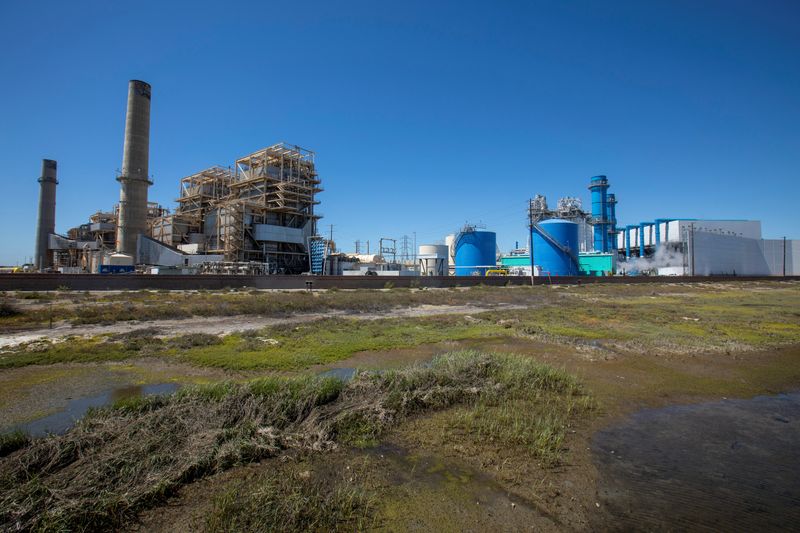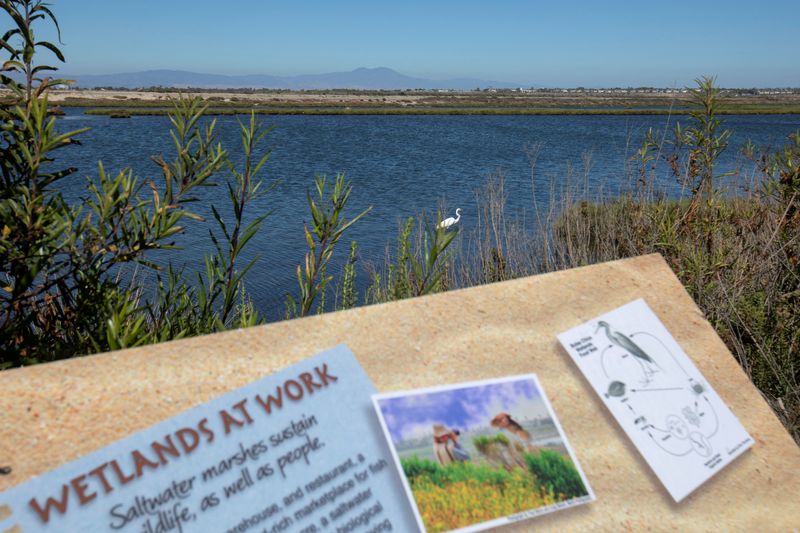(Reuters) -A proposed California desalination plant that would produce 50 million gallons of drinking water per day failed a crucial regulatory hurdle on Monday, possibly dooming a project that had been promoted as a partial solution for sustained drought.
The staff of the California Coastal Commission recommended denying approval of the Huntington Beach plant proposed by Poseidon Water, controlled by the infrastructure arm of Canada’s Brookfield Asset Management.
The commission’s staff said the project was more susceptible to sea-level rise than was understood when it was first proposed more than two decades ago. The plant is expected to produce 50 million gallons (189.3 million liters) of drinking water per day, enough for 16% of the homes in the Orange County Water District, where 2.5 million people live.
The commission staff also deemed the project harmful to nearby fish and bird habitat, said the ground beneath the plant posed a seismic risk, and that the higher cost of the plant’s water would squeeze low-income consumers.
The Coastal Commission, which is scheduled to consider the matter on May 12, could defy the staff recommendation and vote to approve the project.
The 12-member commission is made up of six local elected officials and six members of the public who are appointed by the governor, a senate committee, and the assembly speaker.
“When Poseidon first proposed its facility at this location nearly 25 years ago, sea level rise projections were much lower and adaptation planning was in its infancy,” the staff report said. “Since that time, our understanding of the severity and consequences of climate change and sea level rise have grown exponentially.”
It also raised the risks of sea-rise elsewhere in California. The proposed desalination plant would be on low-lying land about 30 miles (50 km) south of Los Angeles.
“By 2050 to 2070, the surrounding area may be flooded regularly,” the report said.
Environmentalists have long campaigned against the plant, saying desalination decimates ocean life, costs too much money and energy and soon would be made obsolete by water recycling.
Poseidon has operated a similar plant, the largest in the United States, down the coast in Carlsbad since 2015.
The company, which was hoping to break ground on the $1.4 billion Huntington Beach plant by the end of this year, said the commission staff “erred in its recommendation” and called on political leaders to save the project.
“California’s elected officials and regulators should consider the dire consequences that this recommendation will have for desalination in California,” Poseidon said in a statement.
“If this recommendation stands, it will be the death knell for desalination in California,” it said.
But some environmentalists, while praising the conclusions of the report, were not celebrating yet.
“This is not a win. We still need to go through the (May 12) hearing,” said Andrea Leon-Grossmann, director of climate action for ocean conservation group Azul.
Susan Jordan, executive director of the California Coastal Protection Network, urged the commission to reject the project, saying, “We should never sacrifice our coast to drive profits for this foreign $650 billion corporation or any corporate polluter.”
California Governor Gavin Newsom had offered conditional support for the project, so long as it could be done responsibly.
Responding to the recommendation, Alex Stack, a spokesman for the governor, said California faced an unprecedented drought and that the first three months of this year were the driest in recorded history.
“This Administration is committed to ensuring the sustainability of California’s water supply with an all-of-the above strategy, and that includes desalination,” Stack said in a statement. “Regions across California must continue to innovate on local projects as climate change makes our state’s water supply more unpredictable.”
(Reporting by Daniel Trotta; Editing by Tom Hogue, Sandra Maler and Kenneth Maxwell)



























